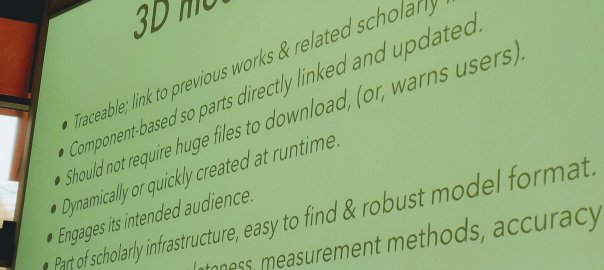I am often asked to mail commercial books, sorry I normally have to refuse. However, there are recent-ish publications that are open access. allowed via institutional repositories or were free to download, that I have written down here:
Open access or available articles, chapters, etc
Books
- Champion, E. (2012). (). Game Mods: Design, Theory and Criticism, Pittsburgh: Entertainment Technology Center Press. 978-1-300-54061-8. URL: http://www.etc.cmu.edu/etcpress/content/game-mods
Book Chapters
- Champion, E. (2020). Games People Dig: Are They Archaeological Experiences, Systems, or Arguments? In S. Hageneuer (Ed.), Communicating the Past in the Digital Age: Proceedings of the International Conference on Digital Methods in Teaching and Learning in Archaeology (12-13 October 2018) (pp. 13-25). London: Ubiquity. https://www.ubiquitypress.com/site/chapters/10.5334/bch.b/
- Champion, E. (2019). From Historical Models to Virtual Heritage Simulations. In P. Kuroczyński, M. Pfarr-Harfst, & S. Münster (Eds.), Der Modelle Tugend 2.0 Digitale 3D-Rekonstruktion als virtueller Raum der architekturhistorischen Forschung Computing in Art and Architecture (pp. 337-351). Heidelberg, Germany: arthistoricum.net. https://doi.org/10.11588/arthistoricum.515
- Champion, E. (2017). “Single White Looter: Have Whip, Will Travel” in Angus A.A. Mol; Csilla E. Ariese-Vandemeulebroucke; Krijn H.J. Boom; Aris Politopoulos, (Eds.)., The Interactive Past: Archaeology, Heritage, and Video Games, Sidestone Press, pp.107-122. URL: http://www.oxbowbooks.com/oxbow/the-interactive-past-50944.html ISBN: 9789088904370.
Journal articles
- Rahaman, H., & Champion, E. (2019). To 3D or Not 3D: Choosing a Photogrammetry Workflow for Cultural Heritage Groups. Heritage, 2(3), 1835-1851. Retrieved from https://www.mdpi.com/2571-9408/2/3/112
- Champion, E., & Rahaman, H. (2019). 3D Digital Heritage Models as Sustainable Scholarly Resources, Sustainability: Natural Sciences in Archaeology & Cultural Heritage, 11(8). MDPI. Editor, Ioannis Liritzis. Open Access. Invited article. https://www.mdpi.com/2071-1050/11/8/2425
- Nishanbaev, I., Champion, E., & McMeekin, D. A. (2019). A Survey of Geospatial Semantic Web for Cultural Heritage. Heritage, 2(2), 1471-1498. https://doi.org/10.3390/heritage2020093
- Bekele, M., & Champion, E. (2019). A Comparison of Immersive Realities and Interaction Methods: Cultural Learning in Virtual Heritage. Frontiers in Robotics and AI | Virtual Environments: Emergent Technologies for Cultural Heritage and Tourism Innovation. doi:10.3389/frobt.2019.00091
- Champion, E. (2017). Bringing Your A-Game to Digital Archaeology: Issues with Serious Games and Virtual Heritage and What We Can Do About It. SAA Archaeological Record: Forum on Digital Games & Archaeology, 17 No.2 (special section: Video Games and Archaeology: part two issue), pp. 24-27. March issue. URL: http://www.saa.org/Portals/0/Record_March_2017.pdf
- Champion, E. (2016). A 3D PEDAGOGICAL HERITAGE TOOL USING GAME TECHNOLOGY. International Journal of Mediterranean Archaeology & Archaeometry, (special issue, selection of VAMCT2015 conference papers). International Journal MAA (ISI Arts & Humanities Citation Index, Thomson Reuters, USA; Scopus) Vol.16, No.5, pp. 63-72.URL: http://maajournal.com/Issues2016e.php DOI: 10.5281/zenodo.204967
- Champion, E. (2016). Worldfulness, Role-enrichment & Moving Rituals: Design Ideas for CRPGs. Transactions of the Digital Games Research Association (ToDIGRA), Volume 2 Issue 3 (special issue, “Diversity of play: Games – Cultures – Identities” selected DiGRA2015 conference papers). URL: http://todigra.org/index.php/todigra/index
- Champion, E. M. (2016). Digital humanities is text heavy, visualization light, and simulation poor. Digital Scholarship in the Humanities (DH2015 Special issue). DOI: http://dx.doi.org/10.1093/llc/fqw053 URL: http://dsh.oxfordjournals.org/content/early/2016/11/07/llc.fqw053
- Champion, E. (2016). Entertaining the Similarities and Distinctions between Serious Games and Virtual Heritage Projects. Special Issue in the Journal of Entertainment Computing on the theme of Entertainment in Serious Games. Vol. 14, May: 67–74. Elsevier. Online. DOI: 1016/j.entcom.2015.11.003. PDF available at Research Gate: https://www.researchgate.net/publication/284930065_Entertaining_The_Similarities_And_Distinctions_Between_Serious_Games_and_Virtual_Heritage_Projects
- Champion, E. (2015). Defining Cultural Agents for Virtual Heritage Environments. Presence: Teleoperators and Virtual Environments-Special Issue on “Immersive and Living Virtual Heritage: Agents and Enhanced Environments,” Summer 2015, Vol. 24, No. 3: 179–186, MIT Press. URL: http://www.mitpressjournals.org/toc/pres/24/3 PDF available at Research Gate: https://www.researchgate.net/publication/284930065_Entertaining_The_Similarities_And_Distinctions_Between_Serious_Games_and_Virtual_Heritage_Projects
Conference paper
- Champion, E. (2016). Worldfulness, Role-enrichment & Moving Rituals: Design Ideas for CRPGs. Transactions of the Digital Games Research Association (ToDIGRA), Volume 2 Issue 3 (special issue, “Diversity of play: Games – Cultures – Identities” selected DiGRA2015 conference papers). URL: http://todigra.org/index.php/todigra/index


